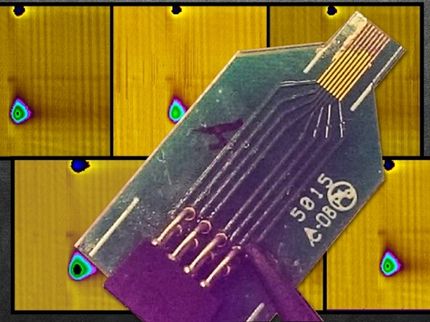Neurogen Announces Positive Results for Aplindore in Restless Legs Syndrome and Parkinson's Disease
Advertisement
Neurogen Corporation announced positive top-line results from two Phase 2 clinical trials in restless legs syndrome (RLS) and Parkinson's disease with the Company's dopamine partial agonist, aplindore. These studies were the first in which aplindore has been evaluated in RLS and Parkinson's disease.
In each study, aplindore demonstrated highly significant efficacy and was well tolerated. Neurogen believes aplindore's dopamine partial agonist controlled release profile may be better tolerated, with fewer side effects and greater dosing flexibility, than existing drugs to treat RLS and Parkinson's disease. Side effects of RLS drugs currently on the market or in late-stage development include daytime somnolence, dizziness and nausea. These drugs require titration, or slow escalation of doses, over several days or weeks to achieve an effective dose. Side effects of drugs currently available for the treatment of Parkinson's disease include nausea, somnolence, hallucinations and dyskinesias, or involuntary movements, and also require titration to reach therapeutic doses.
Stephen R. Davis, Neurogen's President and CEO, said, "In the RLS study, where all subjects received the same 0.05 mg dose on the first day of dosing, we observed statistically significant efficacy at that starting dose. This opens the possibility of dosing aplindore in RLS without prior titration. The potential to provide relief to RLS patients without titration could provide important additional flexibility to physicians and patients. We will further examine this possibility in future studies."
Mr. Davis continued, "Our objective in the Parkinson's study was to explore the safety and tolerability of aplindore across various titration schedules and dose ranges in separate groups of patients. We were very pleased not only to successfully achieve this key objective but, in addition, to observe a strong and consistent efficacy response further informing our view of doses to take into the next study."
Most read news
Topics
Organizations
Other news from the department research and development

Get the life science industry in your inbox
By submitting this form you agree that LUMITOS AG will send you the newsletter(s) selected above by email. Your data will not be passed on to third parties. Your data will be stored and processed in accordance with our data protection regulations. LUMITOS may contact you by email for the purpose of advertising or market and opinion surveys. You can revoke your consent at any time without giving reasons to LUMITOS AG, Ernst-Augustin-Str. 2, 12489 Berlin, Germany or by e-mail at revoke@lumitos.com with effect for the future. In addition, each email contains a link to unsubscribe from the corresponding newsletter.


























































